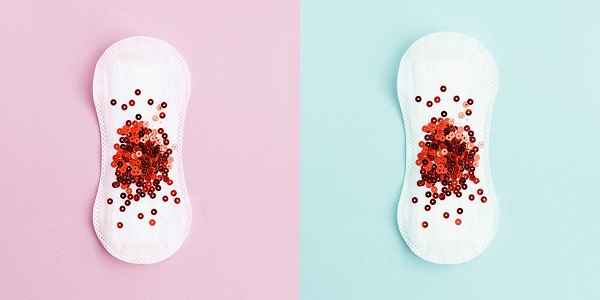
Seven explanations for seriously heavy menstrual periods
When it comes to our period, most of us will experience the odd monthly bleed that’s heavier than usual at some point. But if you’ve been experiencing much heavier than usual periods for a little while now, it’s worth finding out what’s behind the change.
We asked the Gynae Geek, Dr Anita Mitra, to shed some light on underlying causes of very heavy periods. "About 50% of cases have no identifiable cause; this is called 'dysfunctional uterine bleeding’," our doctor explains. "This can only be diagnosed once other identifiable causes described below have been considered."
Advertisement
Read on to find out more about the possible causes of heavy periods (before booking an appointment with your GP, obvs).
1. Fibroids
Fibroids are benign (non-cancerous) growths of muscle that can occur in or around the womb. They vary in size and may come with no symptoms whatsoever, although about 10% of women with heavy periods are known to have them.
"Size doesn't always predict what kind of symptoms they will cause, it's more about where they grow; some fibroids grow outwards away from the cavity, some grow just in the wall itself, and some grow inwards pushing into the cavity," our doctor explains.
"It's the latter that tend to cause heavy bleeding because they increase the surface area of the uterus, so you've got more lining to shed."
2. PCOS
Polycystic ovarian syndrome (PCOS) is a common affects around one in five women in the UK according to the NHS.
"PCOS is typically associated with irregular, infrequent periods," Dr Anita explains. "They can often be heavier as a result because your lining has had longer to thicken up, so there's more to come away."
3. Bleeding disorders
"Your body makes natural blood clotting agents that are involved in limiting the amount of blood that you loose during a period," says the doctor. If these are deficient you can get incredibly heavy periods.
"Deficiency tends to present itself from a young age, and can be diagnosed using special blood tests. Many of these are hereditary, such as 'Von Willebrand Factor', so you may already be aware of a family history."
4. Thyroid problems
Having a thyroid disorder, such as an underactive thyroid (hypothyroidism), goes hand in hand with particularly heavy periods.
"Usually this comes with an underactive thyroid, which is also associated with fatigue, hair loss, muscle weakness, cold intolerance," Dr Anita explains.
"This is because your thyroid hormones play a role in regulating female hormone production, and also the clotting factors that are needed to stem the flow."
5. Endometriosis
Affecting about 10% of women worldwide, endometriosis is where tissue similar to the uterine lining builds up outside of the womb.
"It is most likely to cause very painful periods, and sufferers may be more likely to have heavy periods than women without endometriosis, but it's not actually thought to be due as a result of the disease itself," says Dr Anita.
6. Copper coil
"Copper coils are all the rage these days, and whilst they are incredibly effective contraceptives they are known to increase the amount of bleeding you have every month," Dr Anita explains.
"Heavy bleeding is in fact one of the most common reasons women have them removed earlier than their 'best before' date – a lot of women don't seem to realise it’s so common before having them put in."
If you recently switched up your contraception methods and are experiencing heavy periods, speak to your GP about an alternative method.
"The other type of coil, the hormone coil (Mirena is the most common, Jaydess and Kyleena are both newer), will make your periods a lot lighter," says the doctor. "This one of the most common reasons why many women prefer it."
7. Cancer
Last but not least, the C word. At the bottom of our list for a reason, Dr Anita stresses that this "is the least common cause, but the one that everyone worries about."
It’s good to be aware of any possible signs of cancer, but the chances of heavy periods being an indicator are incredibly slim.
"A recent study published in the British Journal of Obstetrics & Gynaecology found that endometrial cancer (of the lining of the womb) is a very rare cause of heavy periods – 0.11%, or one woman per thousand women with heavy periods," the doctor adds.



